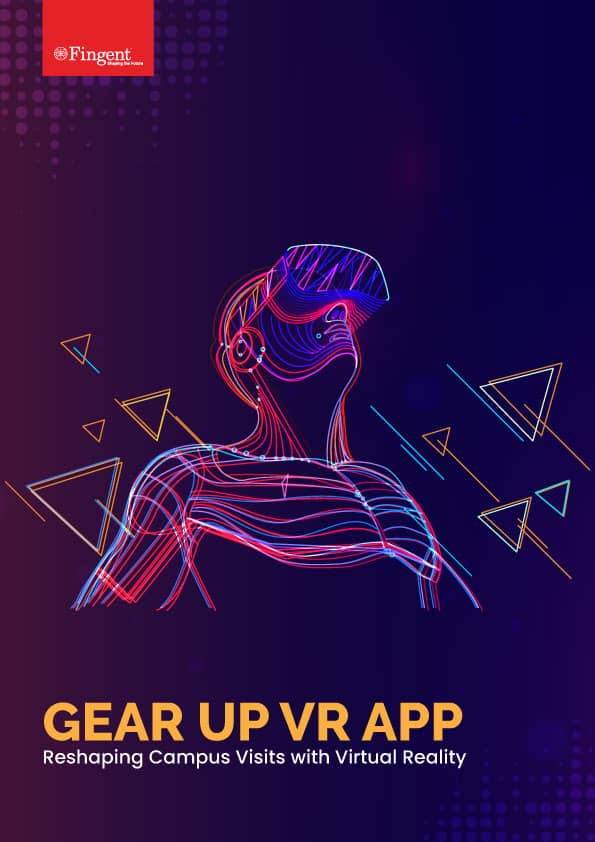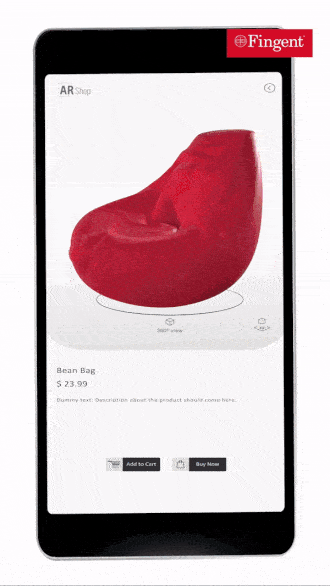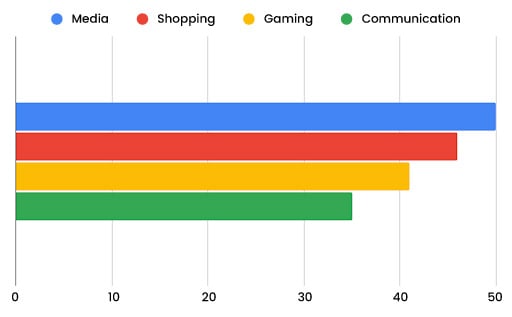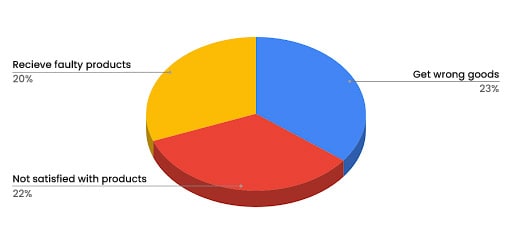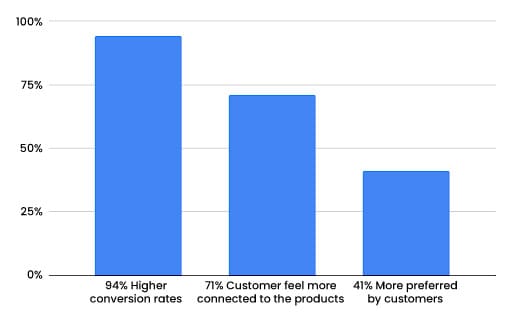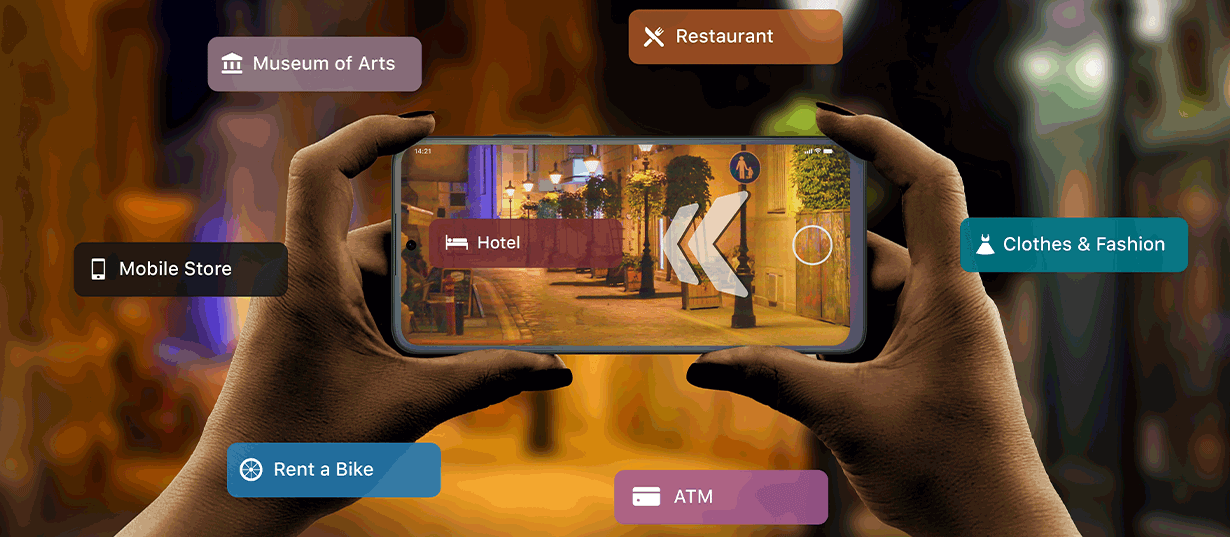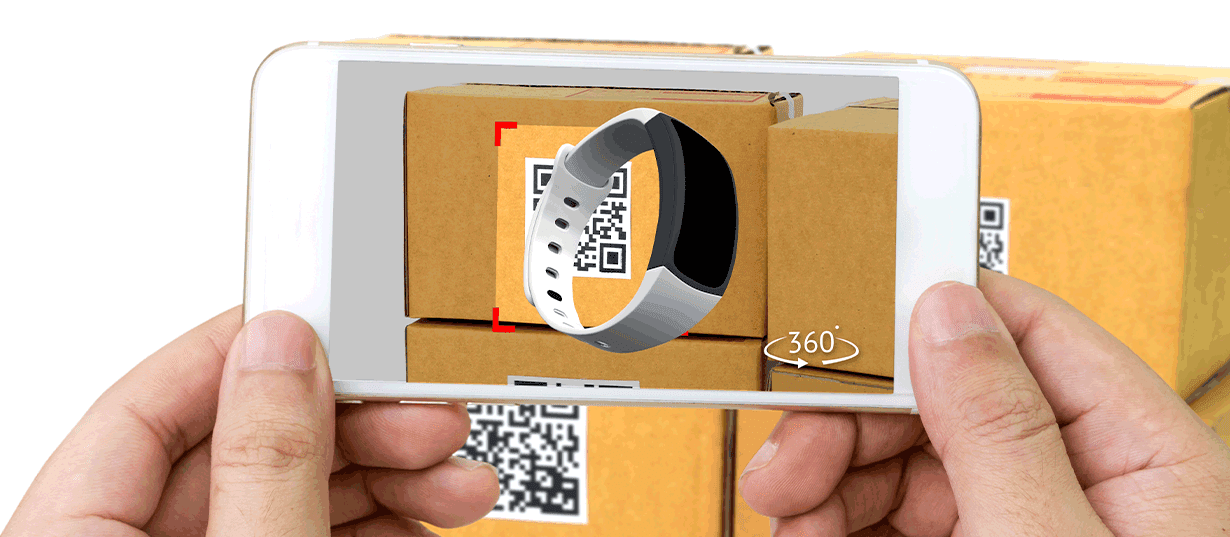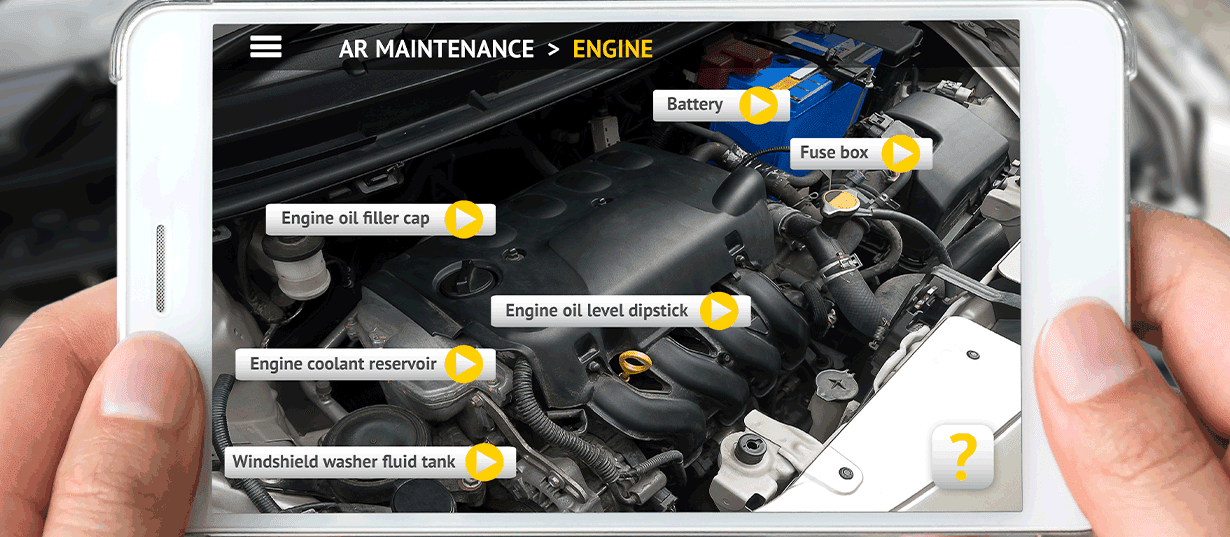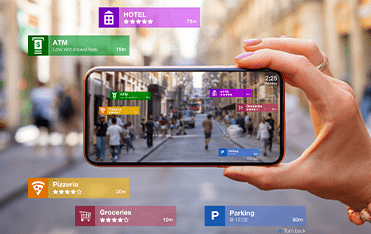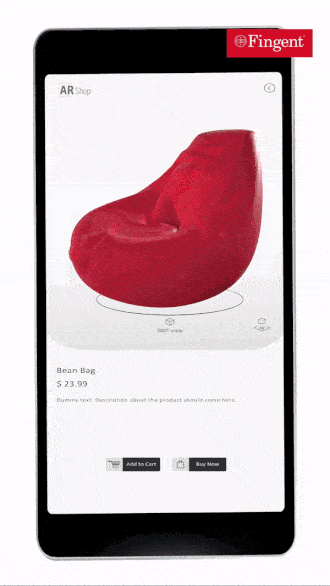Virtual Reality (VR) has surpassed its gaming origins, becoming a transformative influence across various sectors. Through engaging property tours and rapid decision-making, VR in real estate creates fresh opportunities for buyers, sellers, and developers.
Let’s investigate how this innovative technology is transforming the real estate industry.
What is The Use of VR in Real Estate?
Purchasing real estate can be anxiety-inducing and take a lot of time. It requires endless site visits, travel, and effort to compare options. Conversely, sellers dedicate considerable time and resources to arranging showings.
Virtual Reality (VR) is changing this procedure. The days when buyers depended on fixed images or numerous site visits are over. A VR headset lets them “walk” through properties from home. They can view intricate details and experience realistic layouts. This convenience helps narrow choices and saves time for both parties.
For under-construction properties, VR adds an interactive edge. Buyers can customize lighting, wall colors, and furnishings in real time. They can now visualize their future home like never before. VR eliminates geographical barriers and streamlines real estate. It achieves this by providing engaging, three-dimensional experiences.
Transform Customer Experience In Real Estate with VR Let Us Help You Plan A stress-free VR Adoption Journey
What is the Use of VR in Real Estate?
Virtual Reality is transforming the real estate industry. Its new applications assist buyers, sellers, developers, and investors.
1. Virtual Property Tours:
VR lets buyers explore properties from anywhere. It offers a lifelike experience of walking through homes. They can view details, sense the layout, and make better decisions. This avoids the hassle of many physical visits. It saves time and makes it easier for those relocating or unable to visit in person.
2. Staging Properties Virtually:
Setting up physical staging can require significant time and money. Using VR, agents can digitally furnish and decorate properties, highlighting their complete potential. Purchasers can visualize how rooms appear with various furniture designs and arrangements, assisting them in imagining the property as their own.
3. Architectural Rendering:
For future or in-progress projects, VR provides an engaging method to showcase properties prior to their completion.
It offers an immersive way to do this. Developers can create interactive 3D models. Clients can then walk through the project, visualize designs, and customize features like finishes or layouts. This enhances engagement and gives buyers confidence in off-plan purchases.
4. Remote Collaboration:
VR facilitates collaboration among investors, architects, and stakeholders from various locations globally. Immersive models enable them to assess designs, review progress, and provide feedback in real-time. It cuts travel and speeds up decisions. This makes development more efficient.
Integrating VR is boosting the real estate industry. It enhances transparency, ease, and involvement while reducing expenses and labor. It’s a win-win for everyone.
Significance of Embracing VR Technology in Real Estate
In the current competitive landscape, adopting VR technology has become a strategic imperative. The real estate sector is experiencing a significant transformation. AR and VR technologies are expected to reach a market value
of $80 billion by 2025 (Goldman Sachs).
This expansion is part of a pattern. The worldwide AR and VR market is anticipated to hit approximately $369.77 billion by 2032. It will expand at a CAGR of 30.9% between 2024 and 2032.
This growth is inevitable because of the manifold benefits that VR brings to the table by transforming property showcases.
1. Improved Accessibility:
VR removes geographical barriers. It lets buyers explore properties from anywhere. This is especially beneficial for international clients and those relocating from distant cities. Notably, 77% of prospective buyers prefer using VR to view properties remotely.
2. Enhanced Decision-Making:
VR’s 3D experiences immerse buyers. They provide a true sense of scale, layout, and ambiance, reducing hesitation and eliminating guesswork. This approach helps buyers imagine actually living in the space, leading to more confident decisions. This is why 65% of homeowners surveyed believe that VR tours contribute to a better understanding of property layout.
3. Cost Savings:
Virtual staging removes the need for physical furniture rental and setup, while virtual tours reduce the number of in-person visits. For developers, VR eliminates costly physical showrooms by showcasing off-plan properties digitally.
Read more: AR & VR Trends To Transform eCommerce
4. Environmental Impact:
VR reduces travel, so it’s more sustainable. It meets the demand for eco-friendly practices. It also serves as a unique selling point for companies demonstrating environmental responsibility.
AR for Real Estate: Reshaping the Future of Property Management
Read More!
How Does Virtual Reality Enhance User Experience?
VR doesn’t just showcase properties; it creates memorable, immersive experiences.
- Interactive Features: Users can move around, zoom in, and explore areas. It offers a hands-on, dynamic experience. This deeper interaction allows users to better understand the space compared to static photos or floor plans.
- Emotional Engagement: Immersive environments evoke a “home” feeling. They let users connect with properties. This helps them mentally visualize their future in the space, increasing their desire to purchase.
- Customization: VR lets buyers test designs, like wall colours and furniture placement. This flexibility boosts confidence. It shows buyers how changes would look. They gain more control over their space.
Benefits of Using VR in the Real Estate Industry
1. Time Efficiency:
Virtual tours let buyers explore many listings in a fraction of the time it would take to visit them in person. This helps busy professionals or clients with tight schedules. It avoids the hassles of scheduling multiple in-person showings. By streamlining the process, VR significantly reduces the time from inquiry to decision-making.
2. Global Reach:
VR tech transcends geography. It lets remote buyers assess properties without travelling. This lets real estate agencies target a broader audience. It includes expatriates, investors, and clients in foreign markets. VR is an invaluable tool for businesses. It can showcase properties to a global clientele. This can help them expand their reach and boost sales.
3. Higher Conversion Rates:
VR immerses buyers. They experience properties as if they were there. This fosters a stronger emotional connection. This “being there” helps buyers visualize living in the space. It boosts their confidence and reduces hesitation. VR speeds up decision-making by providing a realistic, engaging experience. This boosts sales conversions and reduces second thoughts. For instance, agents and brokers utilizing augmented reality (AR) in real estate marketing have observed increased conversion rates of up to 40%.
4. Competitive Advantage:
Using VR tech makes real estate firms innovative and sets them apart from competitors that rely on traditional methods. This tech edge attracts tech-savvy clients and boosts the company’s reputation as a leader in using cutting-edge solutions. Modernizing the property-buying process will build trust and loyalty. Clients will then trust and be loyal to the business. Approximately 70% of top-tier brokers have embraced VR and AR technologies, underscoring the competitive edge these tools provide in attracting tech-savvy clients and enhancing market presence.
Discover Unique Opportunities with VR Today!
Explore Now!
The Future of VR in Real Estate
Virtual Reality (VR) is transforming the real estate sector, leading to innovative developments that aim to revolutionize how properties are bought, sold, and developed.
AI-Enhanced Virtual Reality Experiences:
AI combined with VR will offer customized and immersive property experiences. By examining user preferences, AI can recommend properties that match particular needs, such as layout choices, budget limits, or lifestyle demands. This flexible personalization improves the buyer’s experience, making sure they devote less time looking and more time interacting with listings that truly fit their needs.
Integration with AR:
The fusion of Augmented Reality (AR) and VR will produce a blended viewing experience, allowing users to effortlessly alternate between engaging virtual spaces and interactive enhancements in actual surroundings. For instance, purchasers can utilize AR to overlay furniture or design features in a VR-modeled home, enabling a better visualization of how their individual style can change the area. This blend of technologies will make the property viewing process more interactive and practical.
Intelligent Agreements in Virtual Reality:
Blockchain-powered smart contracts will revolutionize real estate transactions within VR platforms. Buyers will be able to finalize agreements in real time, directly within the virtual environment, with automatic updates to contract terms and conditions. These contracts guarantee a significant degree of security and openness, minimizing risks linked to conventional transactions while enhancing the speed and efficiency of the process.
As technology advances, VR in real estate will keep breaking new ground, enhancing customer focus, efficiency, and innovation within the industry. With tailored property suggestions, smooth AR integrations, and safe blockchain transactions, the future of VR is set to provide a revolutionary experience for every participant in the real estate industry.
AR vs. VR: A Look at Both Technologies in Real Estate
While AR (Augmented Reality) adds digital components to the real world, VR surrounds users in a completely virtual setting. Here’s a comparison:
Both AR and VR offer unique advantages, but VR provides a fully immersive solution for remote property exploration.
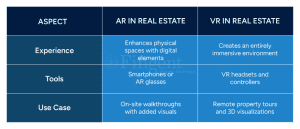
Challenges of Using VR in Real Estate
Although virtual reality in real estate holds great promise, its extensive use encounters various challenges that must be addressed.
High Initial Costs:
The financial commitment for VR adoption is substantial. Hardware like headsets and sensors, along with the development of high-quality, tailored content, require significant investment. These costs can be prohibitive for smaller businesses or startups, limiting VR adoption’s scalability.
Learning Curve:
Users must become comfortable navigating virtual environments and troubleshooting potential issues. Both agents and clients may require substantial training to effectively use VR tools, which demands time and resources. Without adequate support, the adoption process can be slow.
Internet Dependency:
Smooth VR experiences require high-speed internet for streaming and rendering virtual environments. Poor connectivity can cause delays or interruptions in areas with limited internet infrastructure, reducing the technology’s effectiveness.
Hardware Accessibility:
Not everyone can access the necessary equipment, such as powerful computers or VR headsets. This disparity limits VR’s reach, particularly in developing regions or among individuals with budget constraints.
To overcome these barriers, businesses can use phased rollouts and pilot programs to manage costs, collaborate with tech companies for cloud-based solutions to minimize hardware requirements and offer training for smooth integration. Partnering with internet providers to improve network infrastructure and providing flexible access to VR equipment through rentals or subsidies can also address accessibility issues.
How Fingent Can Help Leverage VR for Real Estate
Fingent focuses on developing customized VR solutions specifically designed for the real estate sector. Utilizing advanced 3D visualization technologies, Fingent enables developers, agents, and buyers to participate in a fluid and immersive property encounter. From virtual staging to remote tours and architectural visualization, Fingent guarantees that your business remains at the forefront of this technology-focused age.
Elevate your real estate business with Fingent’s cutting-edge VR solutions.















